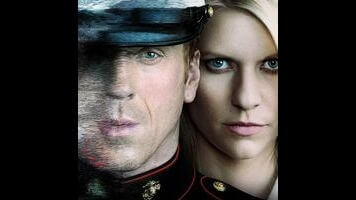Homeland’s ambitious third season doesn’t deserve the backlash

When Saturday Night Live roasted Homeland in a sketch last year, it was evident that the backlash against the award-winning show had reached gale-force velocity. This year, Homeland’s third season—which, by some measures, is much more sprawling and ambitious than its second—has been greeted with raucous mockery, even from TV critics who are usually tolerant of a certain amount of absurdity. Oh, sure, they’re hitting the reset button: The whole “lock Carrie up because she’s nuts” angle was part of a secret master plan. But hold on, she’s pregnant now? The CIA is using Brody to help them install a mole at the highest levels of the Iranian government? A broken-down junkie is fast-tracked back into a Marine super-soldier, ready for black-ops work? Isn’t this all a little ridiculous? To which anyone who’s seen an episode of two of The Blacklist or Hostages or Reign or Dracula would have to ask: Compared to what?
Compared, most likely, to Homeland’s first season. Those first 12 episodes in the fall of 2011 weren’t perfect, but they did earn the show a reputation as a serious, intelligent drama about espionage in the post-9/11 world, as opposed to a pop-espionage fantasy like Alias or 24. There was just one problem with that first season, a problem that Homeland shares with such unlikely cousins as Twin Peaks and Heroes: It was a story with a beginning, a middle, and at least the appearance of an end, and no obvious way to keep going beyond it.
In trying to find a way to keep itself alive, Homeland’s third season has come to resemble an anthology series, built with the materials generated for the show’s first two seasons. For a while, before the big plot twist was revealed, it seemed to be a character study of a confused, possibly deranged patriot at the mercy of larger events; then it picked up the story of the American terrorist’s daughter, and let that play out for a while until its possibilities seemed exhausted; then it finally relented and let Damian Lewis back into the story for a couple of episodes, only to have him soundly upstaged by the great Erik Todd Dellums, as a doctor so regally saturnine that he made Mandy Patinkin and F. Murray Abraham look like Jack McBrayer characters.
Despite Lewis’ skill, having him in the show is a tricky proposition. He tends to come across as if he were missing some important part, and it’s not clear if even he knows what that is. He’s most effective—as in the series Life, the Lodge Kerrigan movie Keane, and the first season of Homeland—when the context provides a guess as to what the missing part of him might be. So it was a smart move to keep him on the sidelines as much as possible.
 Keep scrolling for more great stories.
Keep scrolling for more great stories.
